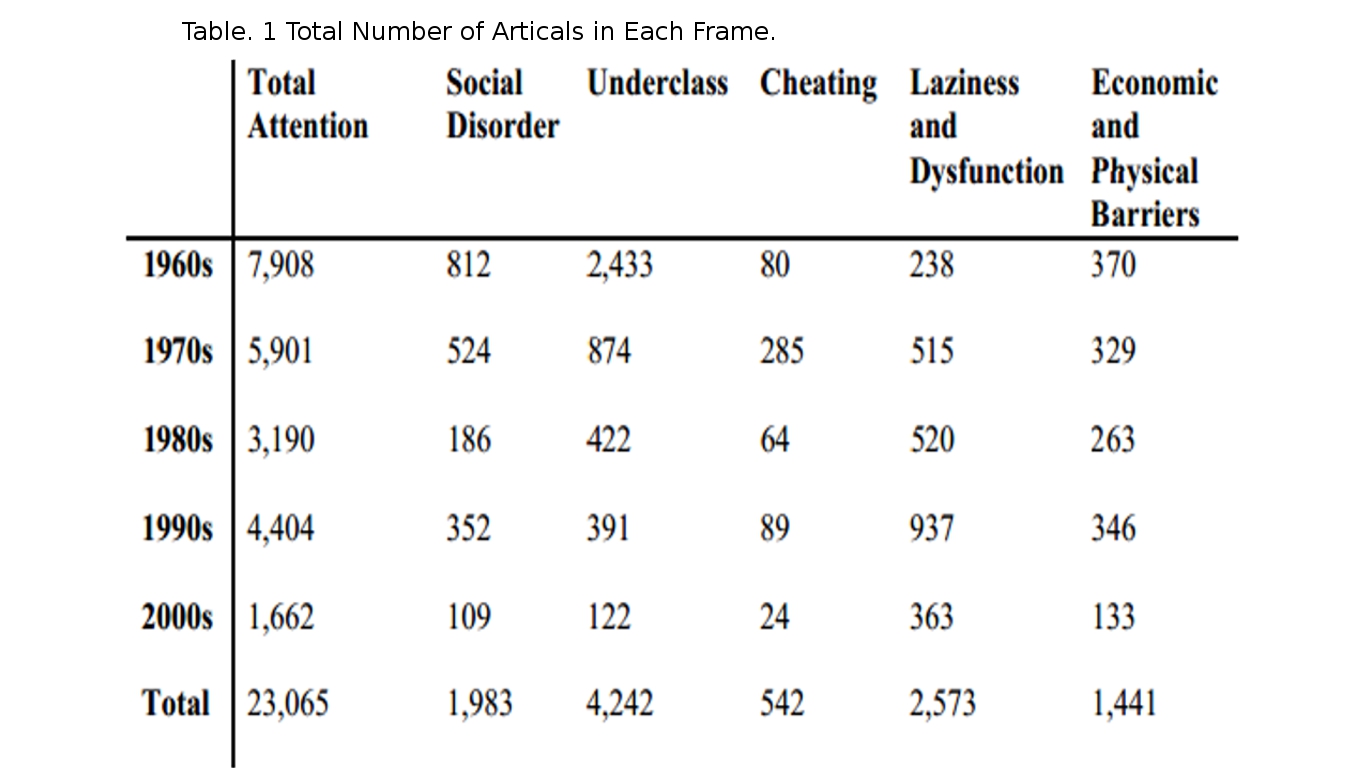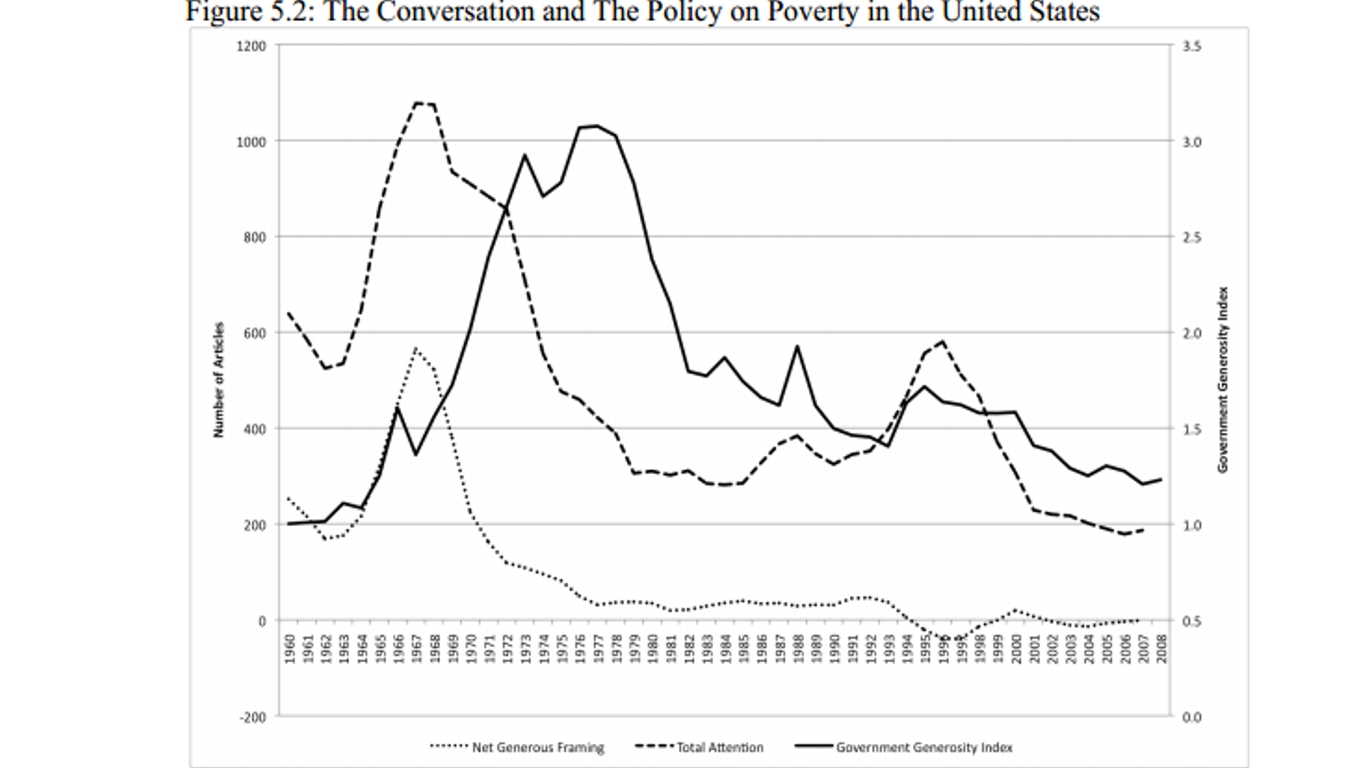Representing the poor has been a problem for society since it first became sedentary and developed complex economic systems. Often treatment of low wage labor was extremely poor by the ruling nobles, but as capitalism developed in the western world those of lower class were treated more equals, though it was their issues were still their own. It’s not till the modern era that society really starts to look at it’s own conditions to explain why poor live their conditions. This does not last however as we suddenly slip back and return to accusing someone’s poverty as ineptness of the individual, and seem to read adhere to ideas of lazy cheating lower class. Why this has happened, and where it will lead is very important to addressing the future economic equality in the United States,
Though it had been growing sentiment for a long time thinking about poverty as structural problem didn't takeoff, particularly in the United States, until after the Gilded Age and into the Great Depression. US politics takes the first big step towards structural adjustment with the New Deal at a time when a majority of American’s find themselves under economic stress. It’s success is later applied in new more controversial policies of the Kennedy, and Lyndon administrations. Lyndon’s “war on poverty” and Great Society programs promise to help reduce poverty by providing easier access to health care, education, and some basic necessities, and after watching many of these policies play out many achieved their goals. Minorities and the elderly were particularly assisted by the Great Society program. There are also considerable decreases in environmental damage and water pollution, due to some of the policies enacted by the Great Society program. However after five years these programs were declared failures and a new social movement emerged.
It was decided at this time that The Great Society was a failure due to rises in unemployment in 1970s, ignoring the fact that this was in part due to an overall slowdown of the economy and the outsourcing of domestic manufacturing. The newly elected president Nixon and powerful neoliberal economist would push that the problems they are now facing due to the big government’s anti-poverty policies. They were so successful that many consider it a go to example of government failure even today despite evidence it did improve our nations economic equality for a much lower cost than anticipated. Petty politics alone could not have supported this alone for so long though, it would require media support.
The inclusion of large news firms would not only up keep the politics of this time, but help return the myth of a parasitic portion of America to validate their claims. Starting in the early seventies the number of newspapers articles making claims that the current poverty problems were due laziness increased dramatically. Much of this was directed towards discrediting social programs as creators a “culture of dependency” in which people would rather receive minute amounts of government assistance than work. Framing the poor would become a particularly popular tactic in the late seventies as high inflation and a slight economic downturn led to many of the government welfare programs were cut. During this time many people fell back below poverty and for the first time in a long time poverty rates increased. For many news outlets this was an opportunity to prove their claims that those in poverty cheat and grow dependent on it, leading to huge spike of articles framing the poor as cheating welfare users, as can be seen by table 1.
Over the next few decades media would keep the public conversation continuously more focused on framing people below the poverty line as lazy and dysfunctional, despite the fact that the level of working poor has remained stagnate for the entire duration. Sadly, structural issues like social capital disparity, underclass frame, saw deep cuts in media coverage. In fact nearly every decade saw an overall decrease in poverty coverage, excluding the 90s due to a sudden burst in lazy and social disorder, the balance of employment and lower class pacifism, frames.
The twisting of public interest becomes very detrimental at this point as fewer people understand the true cause of poverty as a whole. The loss of underclass frames are particularly damaging as not only does it mean a large part of problems in poor neighborhoods are ignored, but understanding of current economic racism is misunderstood and often neglected by those in power positions. Negative frames are also damage poor communities often discourage those who may need extra assistance or would taking risk since they viewed as lesser by not pulling up on so called “boot straps”. The cheat frame can also be an obstacle for a member of any lower class community to gain respect socially, politically, and professionally as people difficulty trusting someone who’s unemployed, making it even more difficult move vertically up the social ladder.
A result of all this media based stereotyping and discussion leading the issue returns to how we govern. Whenever it is that one political institution seeks to give aid to help a group improve their situation, on top how will we afford it there is always a question of do they deserve this chance, and if they how do we keep those who wish to abuse it out. Take the current state of welfare programs right now, it is constantly under threat by budget cuts by those that believe aid is just a way of removing incentive, or if it’s not that there’s always a debate over whether or not drug users or illegal immigrants can get access to that service. As result many projects designed to assist the needy either take to long, or the law becomes twisted and overly complex. There is also a very strong reduction in the government generosity index, combination of resources of a country allocated towards improving poverty, poverty rate, and inflation rate, all without the medicare program due to the cost complications with our aging population. 
Looking at the graph above shows what the future of US could be as we continue to ignore some of the facts poverty. The point of this graph is not just to show that government should be there to give the littler guys a chance, and it no longer is, but it show we are unwilling to use a tool, that should be operated by people, to give everyone a better chance to succeed. Instead we find ourselves punishing those who have and in turn reward those who are the wealthiest. It’s a very serious problem when a society demonizes those who are less fortunate as it leads a extreme worsening of our wealth disparity, what we’ve experienced over the last decade. If we continue much longer on our current path long enough this final effect of our mistreatment of wealth it could end just as it always does when the greater half of the population loses its purchasing power.
Danziger, Pfeffer, & Schoeni (november, 2013) Wealth Disparities Before and After the Great Recession, NNALS OF THE AMERICAN ACADEMY OF POLITICAL AND SOCIAL SCIENCE Volume: 650 Issue: 1 Pages: 98-123 http://www.stanford.edu/group/recessiontrends-dev/cgi-bin/web/sites/all/themes/barron/pdf/IncomeWealthDebt_fact_sheet.pdf
Rose, M and Baumgartner, R (2013) Framing the Poor: Media Coverage and US Poverty Policy, POLICY STUDIES JOURNAL Volume: 41 Issue: 1 Pages: 22-53
Risen, Clay (Fall,2007) The War on the War on Poverty, Democracy a Journal of Ideas: http://www.democracyjournal.org/6/6554.php?page=all